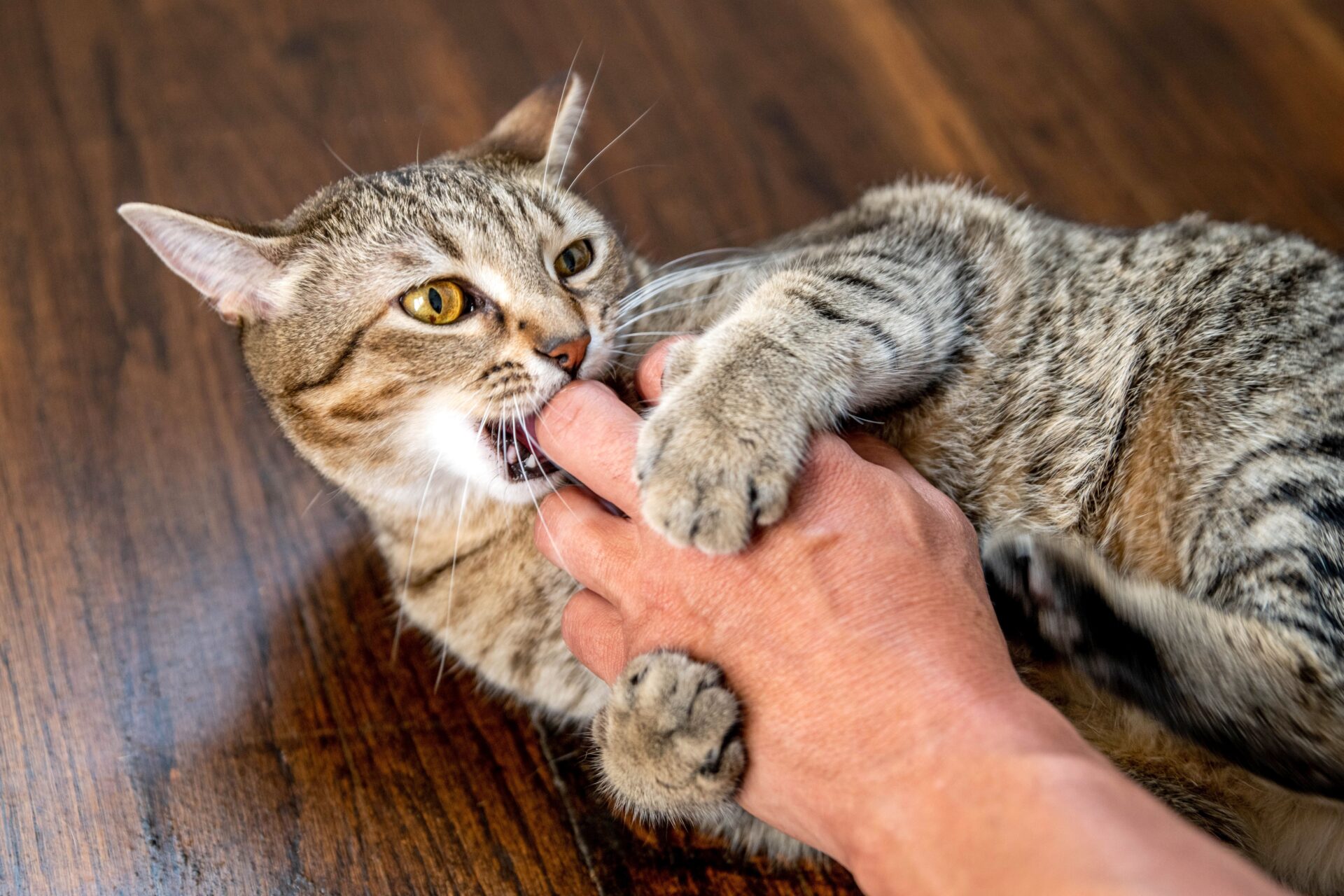Cat Biting When Petted.Why? – Understanding Feline Behavior
Introduction
If your cat has ever bitten you while you were petting him, you might have been taken aback and wondered why your affectionate gesture was met with a sharp response. Understanding why some cats exhibit this behavior can help you improve your interactions with your feline companion. In this article, we will explore the possible reasons why cats may bite during petting and how to handle such situations with care.
Sensory Sensitivity (Cat Biting When Petted)
Overstimulation
Cats are sensitive creatures, and sometimes, too much petting or stroking can lead to overstimulation. They have a threshold for how much physical contact they can tolerate before becoming uncomfortable. When they reach this point, they may bite as a way to communicate that they need a break.
Sensitive Areas
Cats have specific areas of their body that they are more sensitive about than others. The belly, tail, and hindquarters are examples of such regions. If you pet these areas and your cat bites, it’s likely because he is expressing discomfort or a desire to protect those sensitive spots.
Communication and Boundaries
Playful Behavior
For some cats, biting during petting might be a form of play. Cats naturally use their mouths and teeth during playtime, and they might not realize that their gentle bite could hurt you.
Establishing Boundaries
Cats have their own preferences for physical contact, and they might want to dictate when and how they are petted. Biting can be a way for them to set boundaries and let you know that they are not in the mood for affection at that moment.
Responding to Biting Behavior
Watch for Body Language
Observe your cat’s body language while you pet him. If his tail starts twitching, his ears flatten, or he becomes tense, these may be signs of discomfort or overstimulation. In such cases, stop petting him and give him space.
Respect His Preferences
Pay attention to the areas your cat enjoys being petted and those he doesn’t. Avoid touching sensitive spots and focus on areas like the head, cheeks, and chin, which many cats enjoy.
Gradual Socialization
If your cat tends to bite during petting, try gradually socializing him to touch. Start with short and gentle petting sessions and gradually increase the duration as your cat becomes more comfortable.
Seeking Professional Help
Aggressive Behavior
If your cat’s biting behavior becomes aggressive or is causing injury, consult a veterinarian or an animal behaviorist. They can help identify any underlying issues and provide guidance on managing the behavior.
Conclusion
Cats biting during petting can be a result of sensory sensitivity, communication, or setting boundaries. Understanding your cat’s individual preferences and respecting his cues will lead to more enjoyable interactions. Always pay attention to your cat’s body language and be mindful of his comfort during petting sessions to maintain a loving and trusting relationship.
FAQs
- Is it normal for cats to bite during playtime? Yes, biting during play is common in cats. However, it’s essential to ensure that play remains gentle and doesn’t escalate into aggressive behavior.
- How can I tell if my cat is enjoying the petting? A content and relaxed cat will often purr, knead with their paws, and lean into your hand while being petted.
- Why does my cat sometimes solicit petting and then bite? Cats might solicit attention when they are in the mood for affection but may become overstimulated or change their mind about it after a while.
- Should I punish my cat for biting during petting? No, punishment can lead to fear and anxiety in your cat. Instead, withdraw attention and allow him to calm down.
- Can biting during petting be a sign of an underlying health issue? In some cases, pain or discomfort due to an underlying health issue might cause a change in your cat’s behavior. If you are concerned, consult your veterinarian for a check-up.
Read More:Best Places to Pet Cats for Maximum Happiness.Where Do Cats Like to Be Petted?




